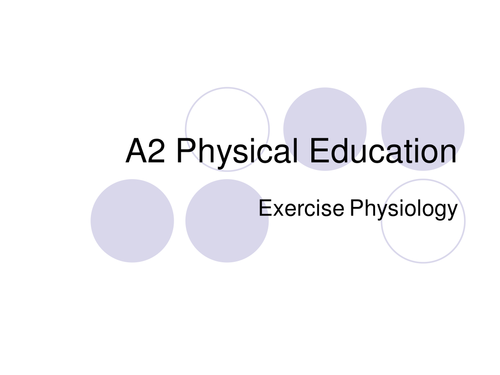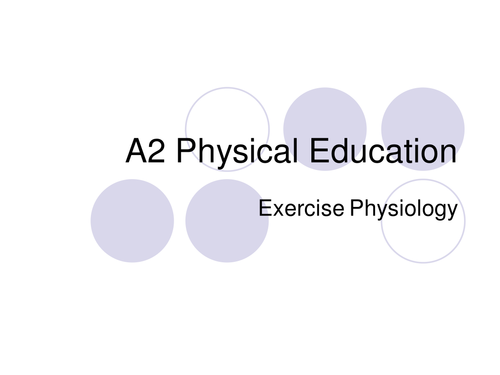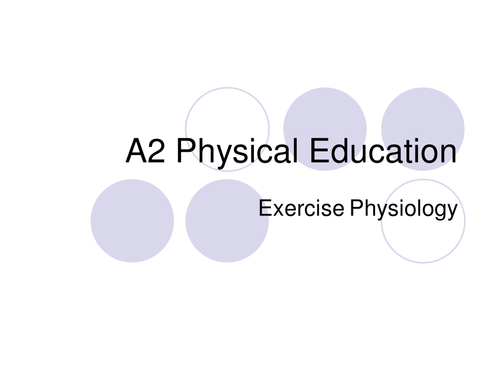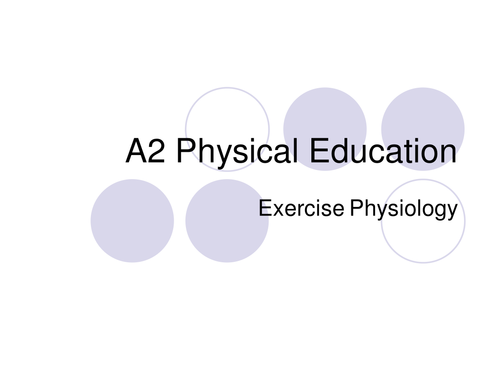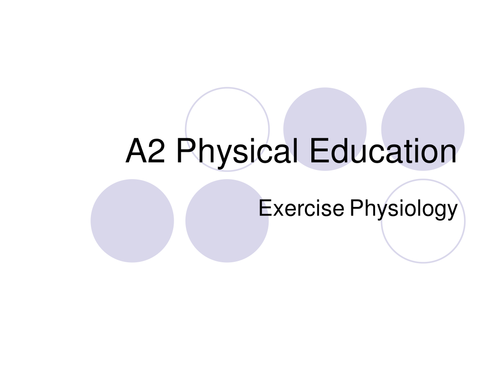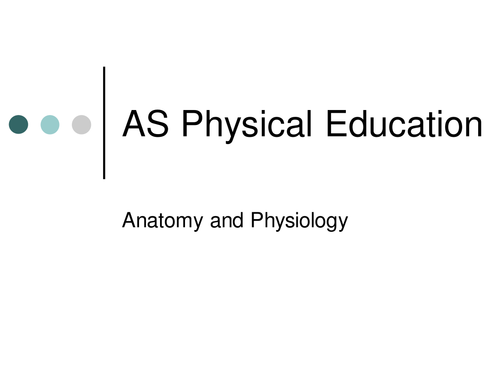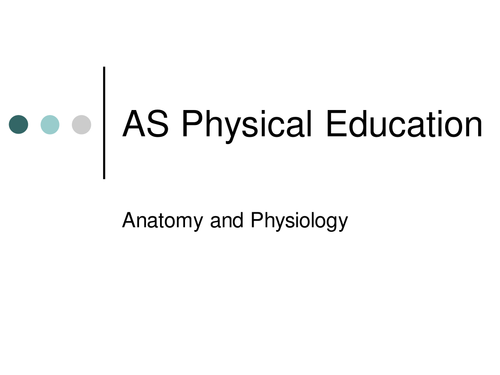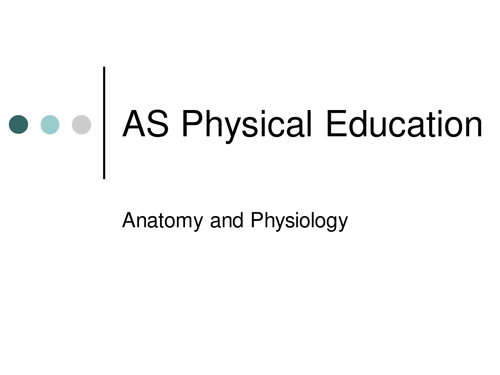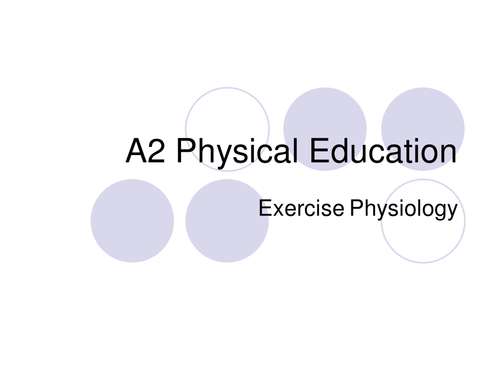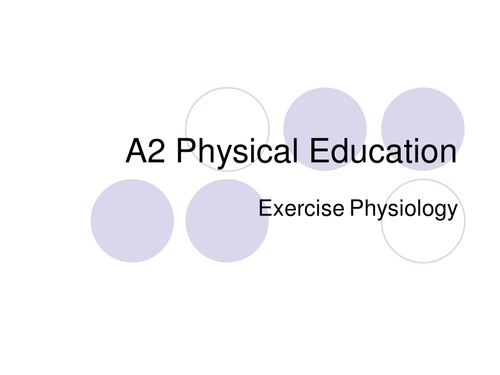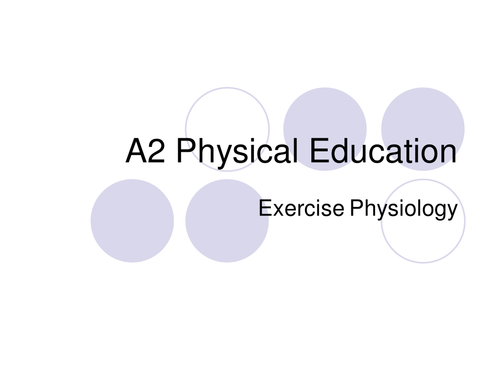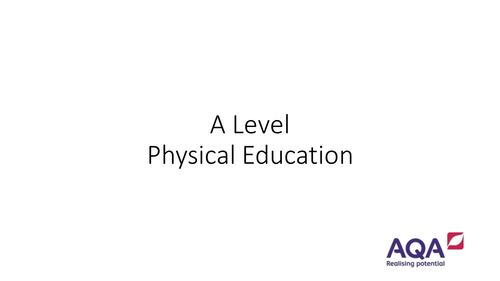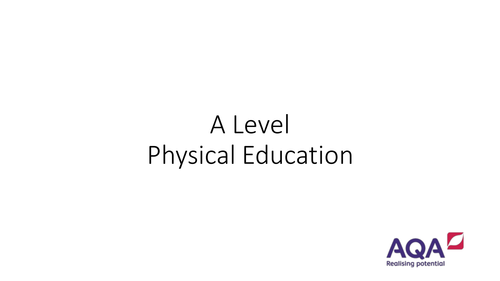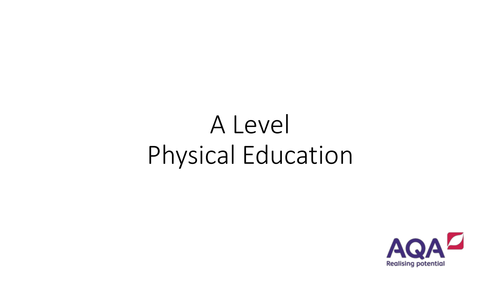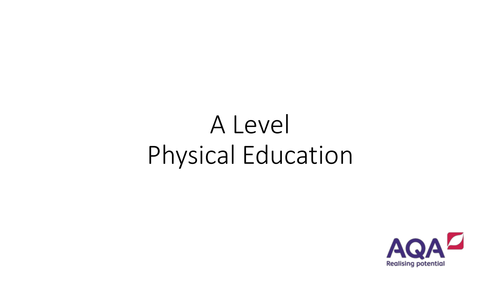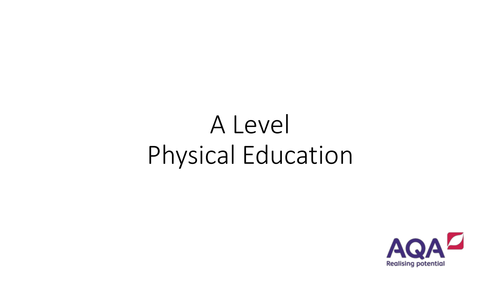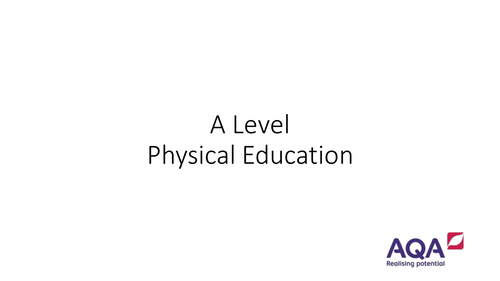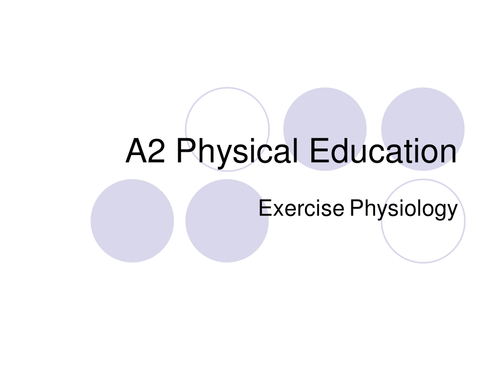
118Uploads
37k+Views
4k+Downloads
Physical education
Sale

A Level PE - Principles of Training
A Level Exercise Physiology lesson. Learning objectives:
- Introduce the Principles of Training (‘Mrs Vopp Testing WC’).
- Give specific sporting examples for all principles of training.
- Show example PowerPoint for task next lesson.
Sale

A Level PE - Strength Two
A Level Exercise Physiology lesson. Learning objectives:
- Describe the energy system and the food/chemical fuels used during each type of strength training.
- Explain the physiological adaptations that take place after prolonged periods of physical activity.
- Plan a programme of strength training.
Sale

A Level PE - Flexibility Two
A Level Exercise Physiology lesson. Learning objectives:
Identify the methods of evaluating flexibility.
Describe different types of flexibility training.
Explain the physiological adaptations that take place after prolonged periods of physical activity.
Sale

A Level PE - Flexibility One
A Level Exercise Physiology lesson. Learning objectives:
- Define and discus static flexibility and dynamic flexibility.
- Describe the factors that affect flexibility.
- Identify the factors which affect flexibility.
Sale

A level PE - Performance Enhancement One
Learning objectives:
- Identify and describe Ergogenic Aids.
- Discuss carbohydrate loading.
- Critically analyse a number of Ergogenic Aids.
Sale

A Level PE - Body Composition One
A Level Exercise Physiology lesson. Learning objectives:
- Explain what is meant by body composition.
- Describe the different methods of assessing body composition.
- Complete a Skinfold Calliper Experiment.
Sale

A level PE - Body Composition Two
Learning objectives:
- Calculate the body mass index (BMI) of each other.
- Introduce the terms Basal Metabolic Rate and Basal Metabolic Rate.
Sale

A Level PE - Cardiac Control Centre
A Level Anatomy and Physiology lesson. Learning objectives:
- Explain the regulation of heart rate during physical activity.
- Identify the neural, hormonal and intrinsic factors that affect heart regulation.
Sale

A Level PE - Respiratory System and an Active Lifestyle
A Level Anatomy and Physiology lesson. Learning objectives:
- Explain the effects of altitude on the respiratory system.
- Identify how altitude training may positively and negatively influence performance.
Sale

A Level PE - Gaseous Exchange
A Level Anatomy and Physiology lesson. Learning objectives:
- Describe the process that takes place during External and Internal Respiration.
- Introduce Partial Pressure and its impact on Gaseous Exchange.
- Explain the changes in Gaseous Exchange due to exercise.
Sale

A Level PE - Aerobic Capacity Two
A Level Exercise Physiology lesson. Learning objectives:
- Describe different types of training used to develop aerobic capacity.
- Explain the energy system and the foods fuels used during aerobic work.
- Detail the physiological adaptations that take place after prolonged periods of aerobic physical activity.
Sale

A Level PE - Strength One
A Level Exercise Physiology lesson. Learning objectives:
- Define the different types of strength and identify the factors that affect strength.
- Describe the methods of evaluating each type of strength.
- Evaluate the different types of training used to develop strength.
Sale

A Level PE - Aerobic Capacity One
A Level Exercise Physiology lesson. Learning objectives:
- Define and describe the link between aerobic capacity and VO2 max.
- Describe the methods of evaluating aerobic capacity.
Sale

A Level PE - Skill Classification - Skill Aquisition
Learning Objectives:
- Introduce the characteristics of skill.
- Describe the skill continua and justify skill placement on each of the continua.
- Understand how the transfer of learning impacts on skill development.
Sale

A Level PE - The Theories of Learning - Skill Aquisition
Learning Objectives:
Introduce the four theories of learning.
- Operant Conditioning.
- Observational Learning (Bandura).
- Social Development Theory (Vygotsky).
- Insight Learning (Gestaltist theories).
Understand how the theories of learning impact on skill development.
Sale

A Level PE - The Stages of Learning - Skill Aquisition
Learning Objectives:
- Describe the stages of learning and the different types of feedback used at each stage.
- Explain the causes and solutions of the learning plateau.
- Introduce the methods of guidance.
Sale

A Level PE - Types of Methods of Practice - Skill Aquisition
Learning Objectives:
- Introduce the methods of presenting practice.
- Classify types and methods of practice.
- Understanding how knowledge of skill classification informs practice structure to allow learning/ development of skills
Sale

A Level PE - Industrial and Post Industrial 1780-1900 Recreation
A Level Physical Education Skill Acquisition lesson. Learning Objectives:
- Understand how sport changed to reflect a changing society during the Industrial Revolution.
- Identify the characteristics of rational recreation.
- Relate the characteristics of early industrial Britain to the characteristics of rational recreation.
Sale

A Level PE - Pre-Industrial Britain - Popular Recreation Pre-1780
A Level Physical Education Skill Acquisition lesson. Learning Objectives:
- Identify the characteristics of pre-industrial Britain.
- Understand the term popular recreation and state its characteristics.
- To be able to link Mob Football, Athletics and Real Tennis to the society of the time.
Sale

A level PE - Performance Enhacement Two
Learning objectives:
- Critically analyse a number of Ergogenic Aids.
- Discuss the use of cooling aids to reduce core temperature and aid recovery.
- Outline the use of training aids to increase resistance.

